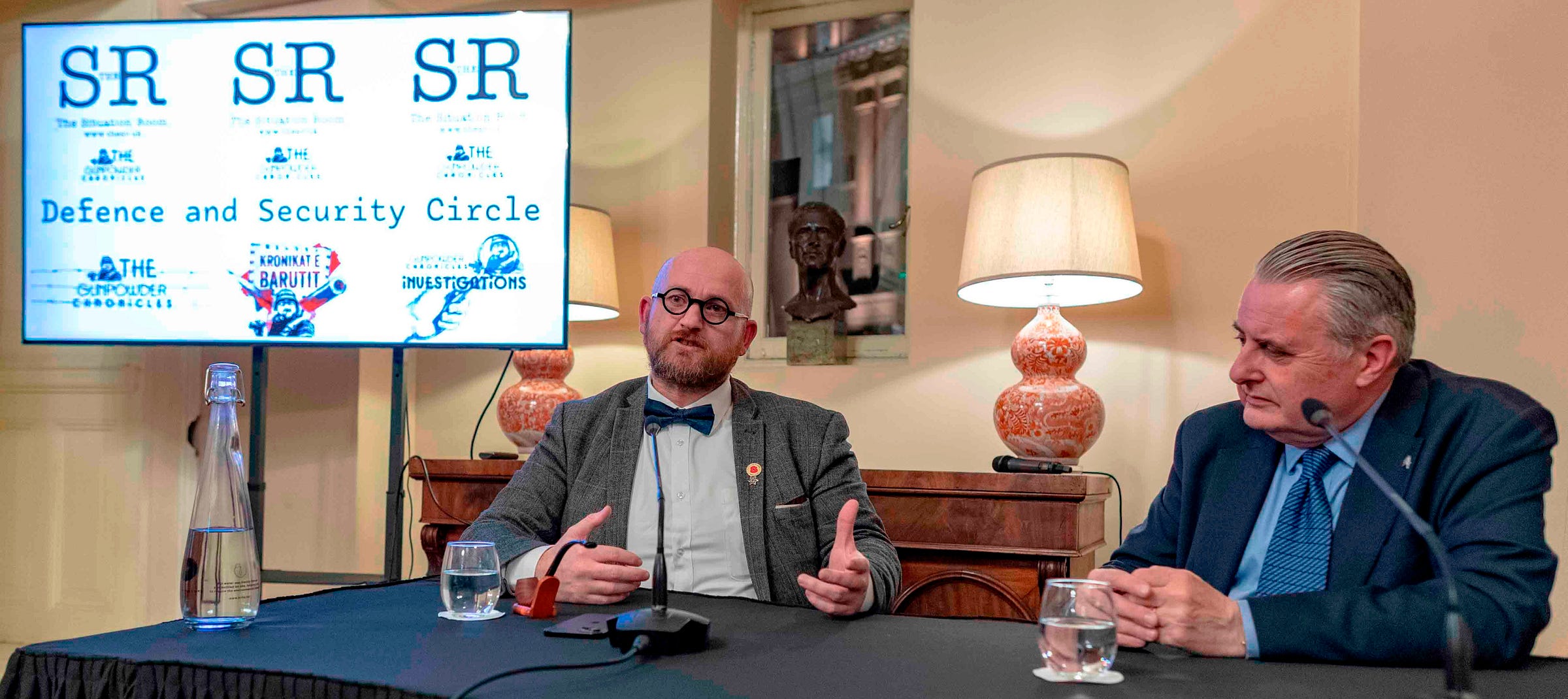The Situation Room Steps Into Whitehall
Against the velvet calm of Whitehall’s Lady Violet Room, Vudi Xhymshiti delivered a stark warning on Russian expansionism, corrosive disinformation and the fragility of Western democracies.
On Monday evening, the Situation Room returned to central London in a setting markedly more formal than the pub where the series first found its footing. What began in late September in the wood-panelled room of the Marquis of Cornwallis has now crossed Whitehall into the Lady Violet Room of the National Liberal Club, where patterned wallpaper, thick curtains and soft low lamps create the impression that the nineteenth century is still very much in residence. The room filled gradually with civil servants, academics, journalists, a few off-duty military officers and an assortment of politically inclined Londoners, all settling into green-backed chairs that faced a black-draped table and a tall screen carrying the initials SR

The Defence a…




